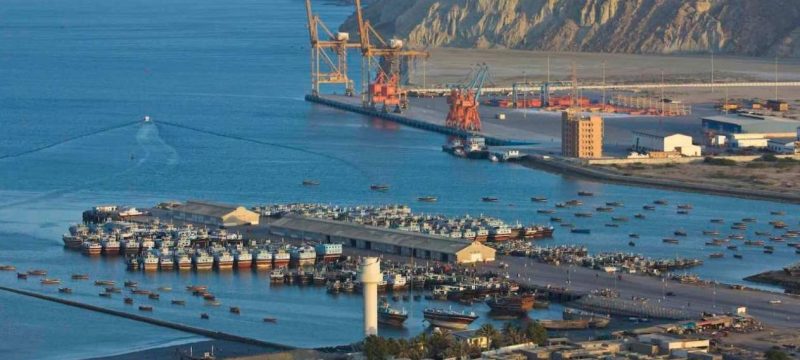Pakistan and China have agreed to operationalise the China-Gwadar-Africa shipping corridor under the five-year maritime action plan for 2025–2029. This strategic initiative aims to boost regional trade and enhance connectivity.
According to reports, Islamabad and Beijing will finalise the action plan, which includes five feeder routes and bonded warehouses to expand trade. Gwadar is set to be developed as a model “Green Port,” with feasibility studies and infrastructure upgrades enhancing short-route connectivity.
The corridor will link Gwadar with the Islamabad-Türkiye-Iran rail and road networks, positioning the port as a key trade hub for Central Asian Republics, Afghanistan, and West Asia. Expanded transhipment facilities are also planned to accommodate rising trade volumes.
Under the new plan, Pakistan and Beijing will promote Gwadar Free Zone resource utilisation. The North Free Zone will host 15 industries, including seafood, tuna, and dates processing plants, along with petrochemical facilities.
Single Point Mooring connectivity will be expanded, and several car manufacturing and other industries are expected to relocate from China to Gwadar.
Memorandums of Understanding (MoUs) will be signed with Pakistani businesses for the operationalisation of Gwadar Port and Free Zone. The plan emphasizes joint cooperation and collaboration to ensure sustainable development.
In addition, Pakistan and Beijing will launch blue economy training for 1,000 local residents at the Gwadar Blue Economy Centre. Training will focus on fisheries, aquaculture, and logistics. These initiatives are projected to generate 25,000 jobs and contribute 30 percent to Gwadar’s Gross Domestic Product (GDP) by 2027.
Experts say this collaboration will strengthen Pakistan-China ties and promote economic growth in the region. By leveraging Gwadar’s strategic location and enhanced connectivity, the corridor is expected to play a critical role in regional trade and industrial development.
In other news read more about Pakistan and Saudi Arabia Sign Historic Defence Deal to Boost Strategic Partnership









